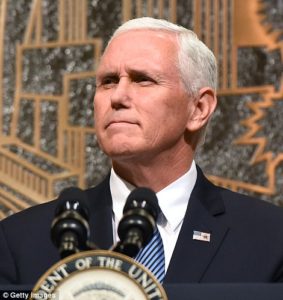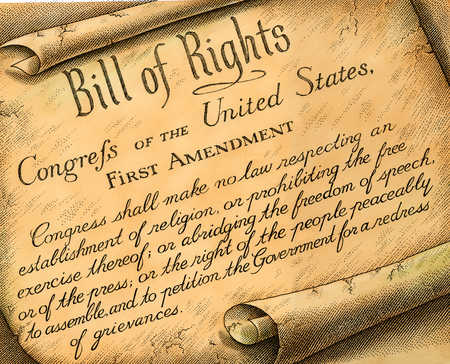In recent years we have had a good deal of confusion in the USA about religion. On the whole, we are a deeply religious people – at least, we have been – so it is perhaps natural that some confusion should arise when what the Bible calls “winds of doctrine” sweep across our country and the world. I can’t clear up all points of confusion in this short piece, of course, but some attempt is warranted. In an earlier article we tackled confusion about Islam.1 This time we’ll have a go at the larger issues of religious freedom and tolerance.
Americans pride themselves on both of these, and we take them very seriously. Protections for individually held religious convictions and allowance for their free exercise are not just polite American customs. They are important principles of self-governance written directly into our Constitution. Because religion is a sensitive topic, confusion is bound to arise, from time to time, over what those protections and guarantees mean. Now seems to be one of those times. Amendment I of our seminal governing document states:
“Congress shall make no law respecting an establishment of religion, or prohibiting the free exercise thereof; or abridging the freedom of speech, or of the press; or the right of the people peaceably to assemble, and to petition the Government for a redress of grievances.”
The amendment’s very simple and direct wording obviously places no restrictions on the people – only restrictions on Congress’s power to pass laws governing religious belief or practice. Over the years the Supreme Court has heard many cases dealing with what Congress can or cannot do on this topic. During one of them a Supreme Court Justice famously thundered: “How do you read those words, sir? I read them as NO LAW!” You don’t need to be a Constitutional lawyer to see that the prohibition is absolute.
In our current era it has become fashionable to claim that the amendment’s free-exercise protections apply only to “organized” religious bodies – e.g., churches, synagogues or mosques. But this qualification is plainly absent from the text. The Supreme Court has repeatedly affirmed that the amendment protects free exercise of religion at the individual level, not merely at the organizational level.
Surely not by coincidence, the amendment goes on to protect freedom of “speech” in both oral and written form – thereby underscoring the strong link between free exercise of religion and free speech. Accordingly, any American is free to proclaim that his is the only true religion, while others are false. As the inclination strikes us, we may preach that Presbyterians (or Methodists or Buddhists or Holy Rollers) are rascals, or that their doctrine is faulty, or that Baptist ministers live too high on the hog. Or some may proclaim (or write) that certain political leaders are “fallen Catholics” or “apostate Jews” because of policies they advocate.
Saying these things might be socially gauche, but such speakers (or writers) cannot be sanctioned or stopped by force of law. They can’t be prevented from saying that anyone who doesn’t believe their way is a miserable sinner. The modern construct of “hate speech” – often invoked to hammer persons making nasty comments about some religion – is not found in the Constitution. Legally, there is no such thing. Any law, at any level of governance, that attempts to restrict such speech is fundamentally un-Constitutional. It cannot be enforced. Persons jailed or fined for religious speech or practice can seek legal redress, and they will prevail. This freedom essentially defines American uniqueness. Very few other nations enjoy it.
Part of our confusion about religious freedom stems from attempts to shift the First Amendment’s protection of religion away from limiting what government can do and toward an invented requirement that individuals must accept any (and all) religions. As secular-minded people have frequently reminded us over our Republic’s history, however, this is not the amendment’s meaning. Every individual is perfectly free to reject any – indeed, all – religion, according to his conscience. Others may call us naughty – wicked, even – for not accepting certain religious beliefs, but we are not obliged to do so. Mandatory acceptance of any faith is not part of our Constitutional deal. I’m a Christian, but I know that real faith cannot be coerced. It is impossible within our national culture.
Dr. Ben Carson – a 2016 candidate for the Republican presidential nomination, and currently Mr. Trump’s Secretary for Housing and Urban Development – was another political figure who got ensnared in the web of misconstruction now surrounding the First Amendment. When coaxed by liberal media interviewer F. Chuck Todd into answering a hypothetical question about whether he would endorse a Muslim for the presidency, Dr. Carson answered “no” – saying that Sharia Law, which devout Muslims support, conflicts with the U. S. Constitution in several important areas. As a Muslim presidential candidate was nowhere in sight, the fatuous question had no particular relevance. Its entire purpose was obviously to paint Dr. Carson as unfit to hold high office on grounds of religious bigotry.
Dr. Carson’s unequivocal answer sent some politicos to the fainting couch. But others, on both sides of the aisle, wheeled up the heavy Constitutional artillery to blast the conservative and upright doctor. Most fired the First Amendment at him, and many cited the concluding passage of Article VI of the Constitution – i.e., “…no religious test shall ever be required as a qualification to any office or public trust under the United States” – in their declaration of war on the soft-spoken neurosurgeon.
Media pundits and pols spent weeks piously pounding Ben Carson for his unspeakable “bigotry.” (Conservative commentator Charles Krauthammer called his remarks about Muslims “outrageous.”) Ironically, many of Dr. Carson’s accusers were the same people who have been shouting from the housetops that Evangelical Christians and Catholics are “unfit” for high office because they refuse to accept abortion and same-sex marriage. I can’t recall any mention of the Constitution when all that was going on. Evidently, some religions can be criticized, but others can’t be. (Who knew?)
Dr. Carson might have added that he probably would not endorse a Christian Scientist for the presidency because part of that religion’s doctrine forbids medical treatment. One also imagines that he wouldn’t accept: a devotee of religious snake-handling; or a neo-Aztec advocate of human sacrifice; or a “naturalist” who believes we should all worship Gaia (a.k.a. Mother Earth), wear animal-skins, live in dirt-floored huts, and cook over fires of dried buffalo poop.
 Religious Snake-handlers
Religious Snake-handlers
F. Chuck didn’t ask the doctor about any of these because even he probably recognizes that our devotion to religious “tolerance” has limitations. The Constitution prohibits Congress from passing laws about religious beliefs or practices, but this doesn’t mean that We The People must accept every religious belief held by candidates – real or imagined – running for political office.
Individuals may exercise their own brand of common sense and good judgment in these matters, even if laws can’t be made to restrict or ban them. And we are not bigots for pointing out how various religions align (or not!) with the Judeo-Christian ethics expressed in our Constitution and system of law. Silencing criticism is tyranny’s first objective. As Ronald Reagan said, “The Constitution is not a suicide pact.”
Vice-president Mike Pence – who makes no secret of his Evangelical Christianity – also ran afoul of the media’s “religion cops” when he mentioned that he talks to God and listens for His voice. The noted theologian Dr. Joy Behar took exception to Mr. Pence’s remarks, suggesting that he might suffers from a mental illness shared by people who claim to “hear voices.” But Dr. Behar did not find common ground with the religious community, which erupted with outrage to her statement. Undoubtedly prompted by her ABC bosses, she eventually issued a personal apology to the vice-president for her insensitive remarks. (Obviously she meant no disrespect.) So much for “tolerance and acceptance.”
 Mike Pence
Mike Pence
*********
- See “Religious Confusion: What is Islam Really All About?” – http://thebullelephant.com/religious-confusion-what-is-islam-really-all-about/

